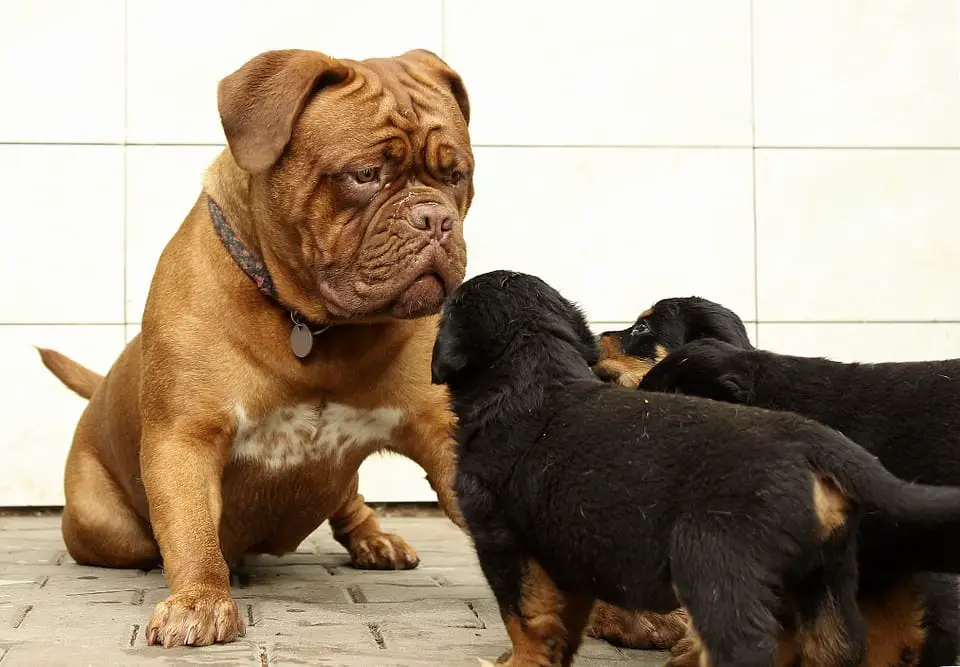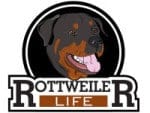Owning a Rottweiler is not that easy a job. It involves a lot of patience, tolerance, and most of all, love. If you have a Rottweiler, you need to make sure that all their needs are fulfilled, especially as a puppy. A 6 weeks old Rottweiler is still a baby and is constantly in need of warmth and company. You can’t neglect that at any cost, for it will lead to repercussions later in their life. They might grow up distant or simply bad-tempered. They might also start having health issues. So, if you have a 6 weeks old Rottweiler puppy on your hands, you need to take care of them religiously.
READ: What Are The Things To Keep In Mind Before You Bring A Rottweiler Puppy Home?
Here are a few things that you can do.
Diet Of A 6 Weeks Old Rottweiler

A 6-week old Rottie’s diet should be different from that of an adult. Don’t feed them packaged, manufactured stuff that is going to be a problem later in life. Start providing them with protein, because they need to grow. And, considering Rottweilers are big dogs, there isn’t much you can feed them except protein and Omega 3 fatty acids that will help them grow. You also should try putting them on a supplement diet, which is going to stop hip and elbow dysplasia later in life. A 6 weeks old Rottweiler will weigh around 8 lbs at this stage in life.
Training A 6 Weeks Old Rottweiler
A 6-week old Rottweiler puppy should be trained from hereon. All you need to do is let them vent their excitement out, by letting them jump and run around. Then start with simple commands – ask them to sit, stand, and bark and be silent in succession. Don’t stop with the treats- always give them one when they have achieved what they were supposed to do. At this period in their lives, you need to make sure that they recognize you to be the boss.
Toilet Training
This is when you should start toilet training them. Even if it means getting out of bed at 3 am on a cold winter night, do it. Else, you would find them doing the nasty on your rug. Don’t get mad at them if they forget what they were supposed to do. Treat them with kindness every single time. They are simply puppies- they aren’t adept at anything yet.
Socialization

Your Rottweiler pupper would do well with socialization. Try taking them out- show them the world around. Let them see the roads, the people, and the other dogs that walk the streets. The more they stay with other animals and species, the more they will start getting comfortable around them. You could also take them to puppy socialization classes where they will learn to interact and be in control around other puppies. It will serve them and you well when they are all grown up.
READ: You Need To Follow The Growth Chart Of Your Rottweiler To Ensure Their Good Health
Never ever lose your cool at a 6 weeks old Rottweiler. They need all the love you can provide for they would be away from their mother. If you have taken one, be sure to care for them well.


